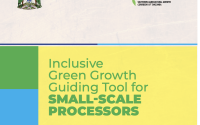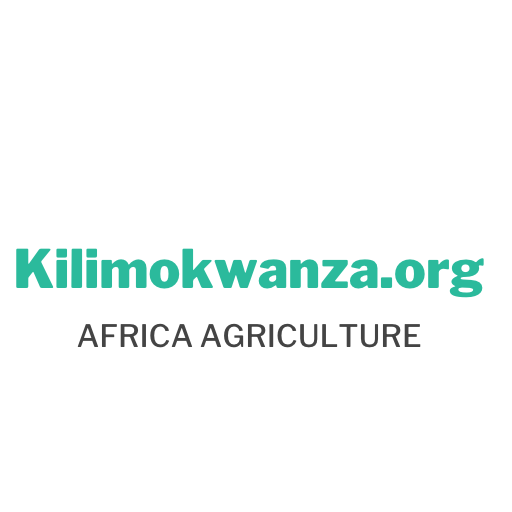SAGCOT CEO to Address Soil Degradation at AU Fertilizer and Soil Health Summit
SAGCOT CEO to Spotlight Soil Health at AU Fertilizer and Soil Health Summit
Kilimokwanza.org
On May 7th, 2024, at the Kenya International Conference Centre in Nairobi, Mr. Geoffrey Kirenga, CEO of SAGCOT, will address the pressing issue of soil degradation at the AU Fertilizer and Soil Health Summit. The session, “Managing Degraded Soils for Reclaiming Livelihoods in Africa,” will explore innovative strategies for soil health restoration. Mr. Kirenga will join leaders from AGRA, CIMMYT and others in discussing collaborative methods to enhance agricultural productivity and secure food sustainability across Africa. His participation underscores the vital role of effective soil management in improving agricultural outcomes.
“Understanding and adjusting soil health is crucial in our efforts to boost agricultural productivity. We’ve equipped farmers with tools and knowledge to optimize their soil, ensuring better crop growth through materials like lime and gypsum. This represents a joint endeavour between the government and sector stakeholders,” said Mr Kirenga.
Kirenga: Aiming for 10 Tonnes per Hectare in Tanzania Maize Production
For SAGCOT CEO Geoffrey Kirenga, the goal has always been clear: to leverage science to provide sustainable solutions to farming challenges. According to Kirenga, the soil partnership project was initiated eight years ago in collaboration with partners focused on soil fertility enhancement.
“In the southern highlands and other areas that receive a lot of rain, such as the Lake region, Kigoma, Geita, Kagera, and other places, there’s a soil acidity problem,” he explains. “In collaboration with the Ministry of Agriculture and TARI, we have conducted research and found many areas where lime is available and can be produced for agricultural use.”
Kirenga points out that the average crop yield per hectare in Tanzania and much of Africa continues to be low due to a lack of technology utilization and inadequate knowledge. “For instance, in the Iringa, Mbeya, and Songwe regions, maize yield per hectare can reach up to 10 tonnes. However, the average yield for most farmers is only between 1.3 to 2 tonnes per hectare.”
According to Kirenga, the SAGCOT initiative has led to significant improvements in these metrics. “In Iringa, farmers have been able to increase their yield from an average of 2 tonnes to 7-8 tonnes per hectare,” he elaborated.
The CEO of SAGCOT, Geoffrey Kirenga, emphasised the strides made through the partnership. “We started this work approximately eight years ago. We noticed that in the highlands of southern Tanzania and other areas receiving substantial rainfall, like the lake zone, Kigoma, Geita, and Kagera, the soil acidity problem was significant. We collaborated with our partners to develop a project using scientific research to find solutions.”
Kirenga elaborated, “Productivity in crops in Tanzania and many parts of Africa has remained low. The reason is mainly because there are things we aren’t doing. Many of these are related to technology and understanding what needs to be done for our farmers and people serving the farmers like agricultural experts and researchers.”
Kirenga’s explanation of the gap between potential and actual yield was striking: “In the regions of Iringa, Mbeya, and Songwe, the yield per hectare of corn can reach up to 10 tons and beyond. However, the average yield for most farmers is only about 1.3 to 2 tons per hectare. This difference, from 10 to 2 tons, is a significant loss that farmers incur due to not using the appropriate technologies.”
AGRA, SAGCOT, CIMMYT, others To Spotlight Africa Efforts to Combat Soil Degradation at AU Fertilizer and Soil Health Summit
SAGCOT #AFSHS2024 #AGRA #SoilHealth
#SAGCOT #AFSHS2024 #AGRA #SoilHealth


